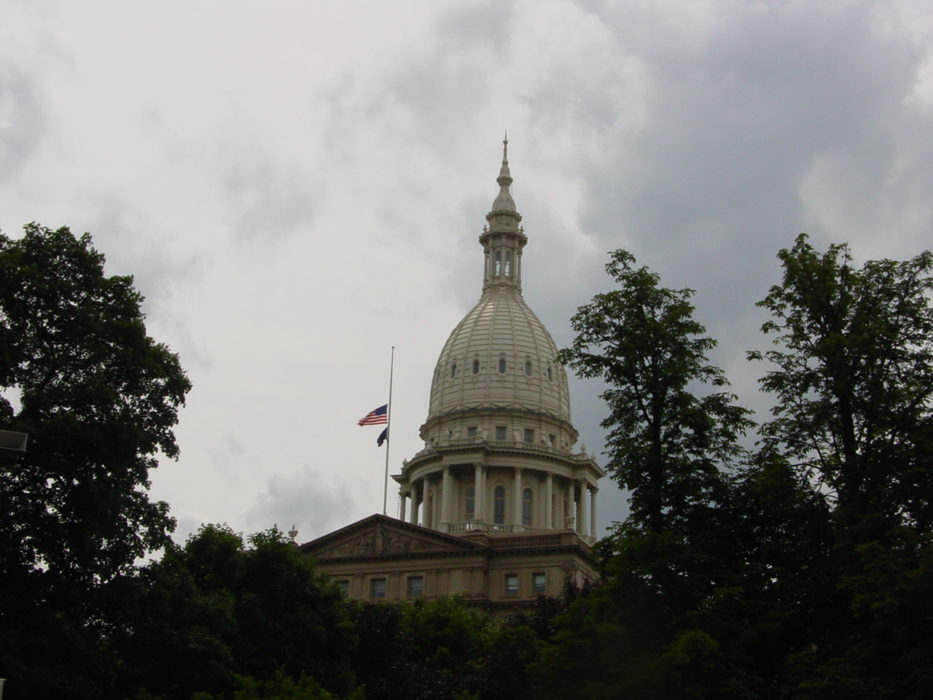
Legislation preventing paid leave time for union officials on union business from being a part of collective bargaining conversations passed out of the Senate Tuesday.
SB 0279 and SB 0280, sponsored by Sen. Marty Knollenberg (R-Troy), have been pegged as a way to close perceived loopholes in state law allowing taxpayer dollars to be used on union officials instead of students.
SB 0279 passed 25-12 on a partisan vote, with the exception of Republican Tory ROCCA (R-Sterling Heights).
Sb 0280 passed in a 20-17 vote, with Republican Sens. Tom CASPERSON (R-Escanaba), Ken HORN (R-Frankenmuth), Rick JONES (R-Grand Ledge), Margaret O’BRIEN (R-Portage), Dale ZORN (R-Ida) and Rocca joining the Democrats in opposition.
In its initial form, SB 0279 would have required unions to foot the bill for their officials’ retirement benefits in the state pension program. A substitute of that legislation would prevent service credits from accruing in a retirement plan during a union official’s leave time.
Knollenberg said the idea is to prevent union officials from inflating their personal retirement payouts based on their union salary using the Michigan Public School Employees Retirement System.
SB 0280 would prevent union officials from negotiating for paid leave time while conducting union business in collective bargaining agreements, although it would still allow for unpaid leave time. Police, fire and corrections officers would be exempt under the policy.
“Every dollar spent on union activity is a dollar taken away from the classroom,” Knollenberg said on the floor.
In a statement sent out after the vote, he added that while such agreements between unions and school districts are not illegal, “they are most certainly unethical.”
“Inflating public school pensions based on union salaries is only hurting a program that is already severely underfunded,” Knollenberg said. “We need to close this loophole and make sure MPSERS benefits go only to those they are intended for — public school teachers and employees.”
Sen. Curtis HERTELJr. (D-Meridian Twp.) said the bill violates federal law and could jeopardize funds at both state and local institutions if passed as worded.
“When we lose over $116 million in funding next year, labor constituents will know you voted yes,” he said.
Other Democrats, including Sen. David KNEZEK (D-Dearborn Heights), said instead of saving the state money, SB 0280 could cost the state an estimated $900,000.
Knezek based his comments on an initial Senate Fiscal Agency analysis of the legislation, which said there are currently an estimated 50 employees whose retirement cost would be impacted by the legislation.
If those 50 people continued to go on leave without accruing pension credit, that analysis states, their salaries would technically be removed from the pension system and increase the rate cap the state pays to MPSERS by an estimated $900,000. That cost would be shifted to the state School Aid Fund.
However, Knollenberg countered with the latest Senate Fiscal Agency Analysis on the bill released Nov. 6, which states the bill would have an indeterminate fiscal impact.
A total of 67 school districts in Michigan have provisions in collective bargaining agreements with their respective labor unions at a cost of about $2.7 million per year, the analysis read.
The analysis concedes that identical contracts minus those provisions could save $2.7 million, but acknowledges that other concessions negotiated in lieu of union leave time could reduce savings or create additional costs depending on the situation.
Knezek also said the bills would force union-related meetings to take place after school hours to work around the unpaid leave time issue, which adds great inconvenience and frustration into the schedules of union officials, businesses and school districts alike.
“There is a reason that labor and business organizations alike oppose SB 0280,” he said.
Senate Minority Leader Jim ANANICH (D-Flint) said the bill was just another anti-union bill typical of the Republican majority.
“Grievances will still be grieved, but now they’ll be grieved after hours,” he said. “This is nothing more than another bill in a long line of bills attacking collective bargaining.”
Audience in the Senate gallery, some of whom were members of the United Auto Workers, closely watched the debate and occasionally clapped for statements against the legislation and booed statements supporting it. They were gaveled down at one point in the debate.
The perceived controversy the bills attempt to address stems in large part from a February Capitol Confidential report noting Michigan Education Association (MEA) President Steve COOK made more than anyone else in the Lansing School District and receives pension benefits from the state that are calculated from his six-figure MEA salary.
His current deal with the district keeps him on the school employee pension system while working full-time as the association’s president. The Lansing School District and the MEA said the setup was nothing unusual compared to what’s been done with past MEA officials, who are required to be school employees.